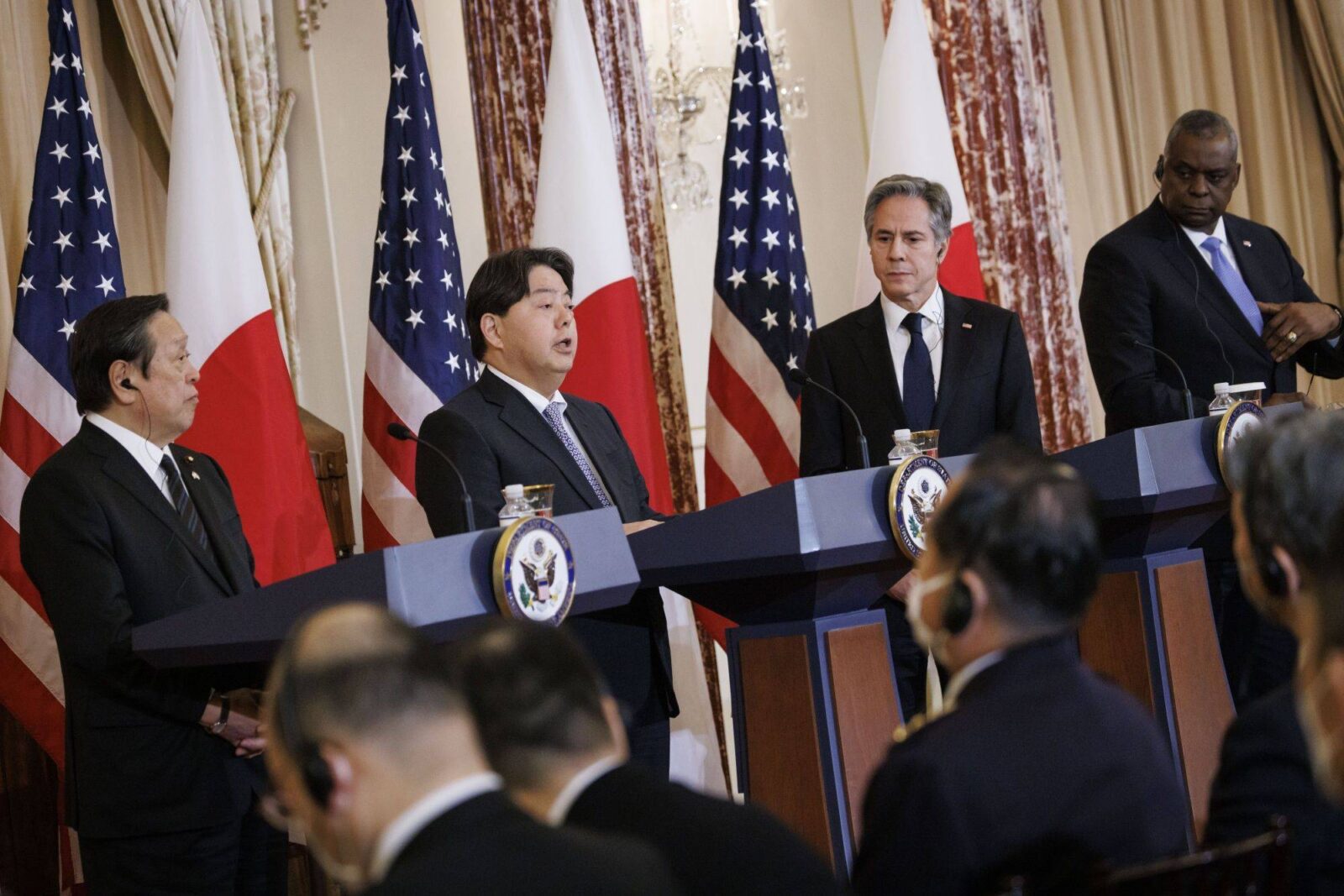The United States and Japan agreed Wednesday (11) that their security and defense treaty applies to space, announcing the deployment of a more agile naval unit on allied soil amid growing concerns over China.
Weeks after revealing plans to increase defense spending, Japan sent its defense and foreign ministers to Washington, and the two countries issued a joint statement promising to “modernize the alliance to deal with the increasingly intense security environment.”
The dialogues come two days before Prime Minister Fumio Kishida visits the United States as part of a trip to the Group of Seven countries to inaugurate Japan’s presidency this year of the select club of industrial democracies.
While China makes rapid advances in satellites, the United States and Japan warned in their statement that “attacks on, from, or within space present a clear challenge to alliance security” that could invoke Article Five of their mutual defense treaty. This agreement contemplates that an attack on one country is considered an attack on both.
Pentagon chief Lloyd Austin met Thursday with his Japanese counterpart, Yasukazu Hamada, to reiterate the United States’ “unwavering commitment to Japan’s defense,” including the “extended deterrence that provides the reach of the U.S. country’s conventional and nuclear capabilities,” according to a statement.
The meeting comes a day after the United States announced it will deploy a new mobile Marine unit to the island of Okinawa, in southern Japan and strategically close to Taiwan, to bolster the country’s defense.
“We will replace an artillery regiment with this force that will be more lethal and more mobile” by 2025, Austin said Wednesday.
“We agree that the People’s Republic of China is the greatest common strategic challenge facing us, our allies and our partners,” U.S. Secretary of State Antony Blinken said at a press conference along with his Japanese counterpart as well as the defense ministers of the two countries.
Japanese Foreign Minister Yoshimasa Hayashi said that the United States and Japan together have “the vision of a modernized alliance to assume the position that allows us to win in the new era of strategic competition.”
- Risks to Taiwan
Okinawa is home to more than half of Washington’s 50,000 troops in the Japanese archipelago. Hayashi said the Japanese government would continue to work to address residents’ concerns. The meeting comes weeks after Tokyo announced a major overhaul of its defense doctrine. Japan’s calculus has changed while China is under the presidency of Xi Jinping.
Japan, which has called China an “unprecedented strategic challenge” to its security, approved a review in December that includes a huge increase in military spending over five years.
This is a major turning point for the country, whose pacifist constitution, adopted after its defeat in World War II, prohibits it in principle from having a full Army.
China claims Taiwan, an autonomous democracy, as part of its territory. Last year, Beijing made moves that were seen as a rehearsal for an invasion, following a defiant visit to Taipei by Nancy Pelosi, then Speaker of the U.S. House of Representatives.
“I’m not going to question Mr. Xi, but what I will tell him is that what we’re seeing recently is very provocative behavior by Chinese forces,” Austin said.
“We think they are striving to establish a new normal, but whether or not that means an imminent invasion, you know, I seriously doubt it,” he said.
At a press conference on Thursday, Chinese Foreign Ministry spokesman Wang Wenbin said that, “when carrying out bilateral military cooperation, the United States and Japan should ensure that it does not harm the interests of third parties, or regional peace and stability.”
*** Translated by the DEFCONPress FYI team ***
